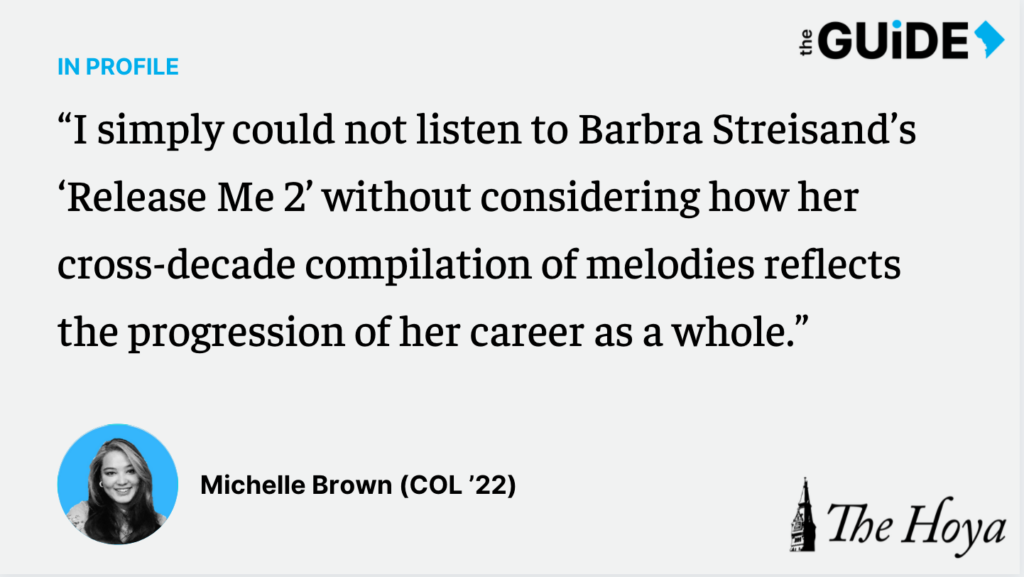★★★★☆
Eminem lashes out at anyone and everyone on his latest album “Kamikaze,” reacting fiercely to the disappointing commercial and critical performance of his 2017 album “Revival.”
The Detroit, rapper deploys lyrical tongue twisters and explores topics as diverse as Vice President Mike Pence and the Grammy Awards during his ferocious attempt at a comeback.
Over his 20-year career, Marshall Mathers, better known by his stage name Eminem, has accumulated a large fanbase with his distinct rapping style and clever lyricism. Eminem’s creativity has kept him relevant in the ever-changing rap music scene, and his 100 million worldwide album sales are a testament to that.
While most musicians spend months drumming up excitement for an album release, Eminem’s 10th studio album, “Kamikaze,” came unannounced. This surprise release was especially surprising given the poor performance of his previous album, “Revival,” which he released in 2017. Eminem, ever self-aware, admits this fact on his new album’s second song, “Greatest,” wrapping that “‘Revival’ didn’t go viral.” On “Fall,” Eminem shows that he remains unfazed: “I took an L when I dropped my last album / It hurt me like hell but I’m back on these rappers.”
Throughout “Kamikaze,” Eminem’s resilience carries through once again. Despite drug addiction, an array of controversies and countless public feuds –– including ones with his own mother, his ex-wife and President Donald Trump –– Eminem has shown his ability to adapt and overcome.
“Kamikaze” is, for all intents and purposes, a reactive album. Eminem is clearly responding to the feedback he received from his last album, and he does so in both a direct and indirect manner. He is attempting to regain his status as a rap icon.
The most direct response appears on “Greatest,” in which Eminem expresses his belief that he might be the “greatest in the world … the best to ever do it.” He makes this claim despite his own admittance that his previous album had subpar performance. Despite this concession, he raps that people are still trying to copy him, which he views as proof that he is still relevant.
In addition to touting his own talent, Eminem expresses a disapproval of current rap trends like autotuned crooning and simplistic lyrics. On “The Ringer,” a bold first track that echoes some of Eminem’s earliest and most popular works, his vicious alter ego “Slim Shady” makes an appearance, as he tears apart artists like Lil Yachty, Lil Pump and Lil Xan for their “mumble rap.” Eminem’s attacks are not limited to rappers, however: He also pokes fun at Pence and criticizes media outlets for using his name for views.
“Not Alike,” which serves as an indirect critique of the current rap scene, features repeat collaborator Royce da 5’9”, who last appeared on an Eminem project in 1999’s “The Slim Shady LP.” The beat of the track mirrors that of Drake and BlocBoy JB’s “Look Alive.” With this similarity, Eminem shows that while he is capable of following today’s musical trends, he actively chooses not to, preferring to be original. This perceived lack of creativity is also addressed on “Fall”: “One minute, they’re mockin’ Jay / Next minute, they get their style from Migos, ’til they copy Drake.”
An additional display of Eminem’s refusal to conform comes in the two skits that break up “Kamikaze.” In “Paul,” Eminem’s manager Paul Rosenberg leaves a warning message that the album might be a bad idea, given that it is in large part an attack on his peers. Eminem responds with his own skit, “Em Calls Paul,” in which he expresses no doubts about the album and launches yet another attack on an unidentified music reviewer. These skits cement the album’s reactive quality.
While the reactionary message of the album is clear, it is not ubiquitous. “Lucky You,” which features fellow rapper Joyner Lucas, is much more reflective. In his verse, Eminem discusses selling your soul to be commercially successful. Winning 15 Grammys out of his 43 nominations, he raps that he was in the industry for the recognition and expects to receive continued success.
“Normal,” which breaks up the album with a singing flow, also provides a thematic break. Eminem touches on a common theme in his songs: failed relationships. Shock value is certainly present in this song, with Eminem nonchalantly addressing domestic violence, normalizing it by saying that it makes “love for each other grow stronger.”
Like “Normal,” “Stepping Stones” bears similarities to Eminem’s early-2000s work, most obviously “When I’m Gone.” He temporarily abandons his rapid-fire rapping in favor of a more sing-songy delivery. Eminem’s tough exterior fades away as he expresses regret for mistakes that he has made both publicly and privately.
An otherwise stellar album, “Kamikaze” is dragged down by two weak songs that lack the thematic relevance or reflection of others. The bizarre “Nice Guy (with Jessie Reyez)” is the least thrilling song on the album. The chorus, with Reyez screeching, is jarring and quite frankly painful to listen to. Eminem’s verse is underwhelming, with little substance.
The follow-up song “Good Guy,” which also features Reyez, is slightly better than the previous, mostly because Reyez switches over to a more pleasant singing style. The track is, however, certainly still a decline from the early songs on the album. These disjointed songs diminish the cohesiveness of the album and fail to match the general quality of Eminem’s discography by a sizable margin.
Despite a few questionable songs, “Kamikaze” did what Eminem –– as well as his fans –– wanted the project to do. In a show of his artistry, Eminem successfully stitched together a patchwork of diverse lyrical topics into a cohesive comeback album that should quiet claims that he has been ousted from the contemporary rap scene.
















Shanaya • Nov 6, 2018 at 1:26 am
Eminem is no doubt the current god of rap. The artistic way of writing the lyrics and its not everyone’s cup of tea. His songs have great meaning and they are way better than many people.